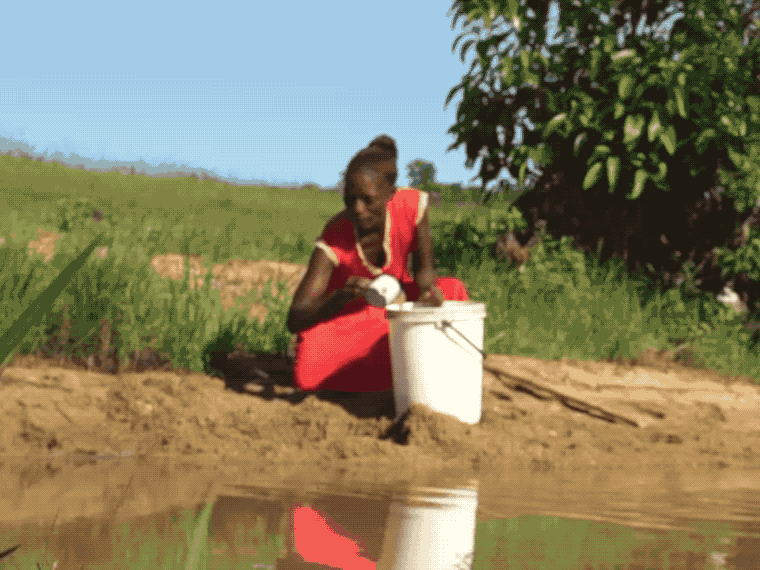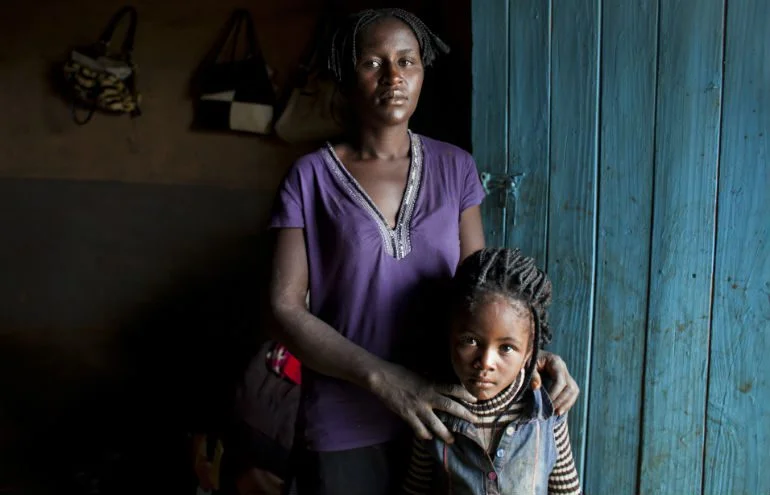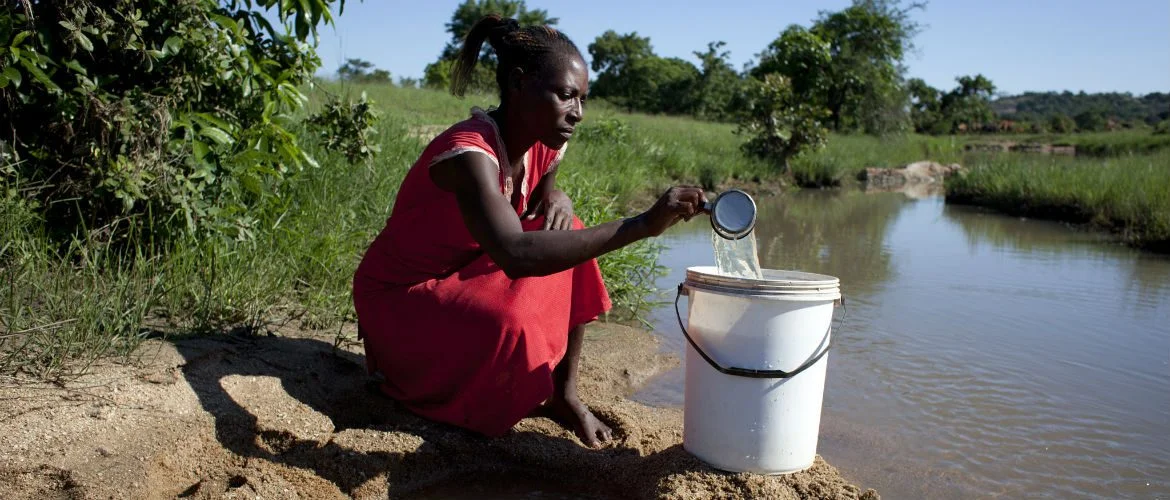To what lengths will a loving mother go for their child?
In Zimbabwe, mothers like Ida literally walk a marathon every day, to provide water for their children. After five years of brutal drought and extreme weather, Zimbabwe is hard hit by food shortages, and clean water is scarce.
Ida’s daily routine is extraordinary. Each morning, she wakes before sunrise to ensure that her husband and six children will have water to drink.
“I would walk to Mutirikwi River and fetch water there three times a day so that I get enough water to use for my children,” she says.
“It is one hour and 30 minutes each way, each trip. I wake up at 4am and start taking those trips to fetch water. I use my head, one bucket at a time.”

Photo: Abbie Trayler-Smith/OxfamAUS
Ida walks up to nine hours each day to collect water from the river. The water is contaminated, but she has no alternative water source.
“It’s not safe water,” Ida explains, “because at the river, you find people upriver will be having their baths, doing their laundry — and I fetch water down river.
“At times when the river is not flowing and the water is just stagnant, I take my hoe and dig by the river bed. I dig in the sand so that water comes out and I scoop that water.”
Ida knows the dangers of drinking dirty water.

Photo: Abbie Trayer-Smith/OxfamAUS
“I see human waste flowing along the river. I just push it aside and continue fetching my water … That human waste is not good for water consumption. But I have no choice, that’s the only source of water.”
Ida’s children are often sick from drinking the river water. “They have ‘running stomachs’, diarrhoea, due to drinking that unsafe water.”
“As an adult, I am a little better off. But for the kids, they are always sick and almost on a monthly basis I go to the clinic.”
“It takes four hours to walk to the clinic,” she says.
Like water, health care is hard to access in her small village. But Ida takes it in her stride.
“We waste a lot of time going to clinics due to our children drinking contaminated water. If our children were healthy, that time that we spend going to clinics would be utilised in doing other productive activities.”

Photo: Abbie Trayer-Smith/OxfamAUS
In Zimbabwe, women and children bear most responsibility for finding and gathering water.
“My girls are school-going age, they need to read, do their homework and concentrate on their schoolwork. But because they have to do these trips to fetch water, they don’t have enough time to do their homework,” Ida says.
The countless hours spent traipsing to collect water takes time from each day that should be spent working or learning — this entrenches the cycle of poverty.
A picture of strength and resilience, Ida has great aspirations for her children: “My hope is that if they could proceed with their education, get a good education, better their lives and also help improve our lifestyle … assisting not only the family but the community.”
“The time that we are wasting walking up and down to fetch water is productive time that is wasted,” Ida explains.
Ida knows the solution for her problem: a borehole.
“If we could get water nearer to our place, it would reduce the amount of trips we make to go fetch water and that would be productive time that would assist us to do at least something that would uplift our livelihoods.”

Help break the cycle of poverty
Families in Zimbabwe are facing an urgent hunger and cash crisis. Without food and water, children don’t have strength to attend school and thrive — and the cycle of poverty continues.



